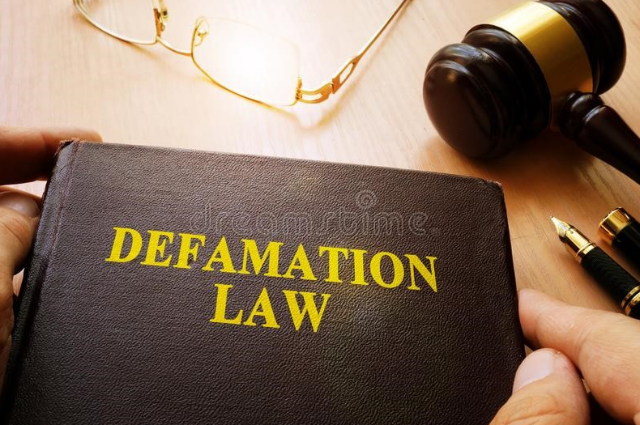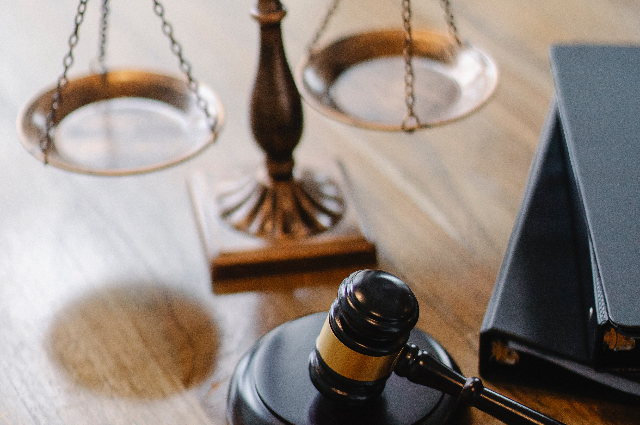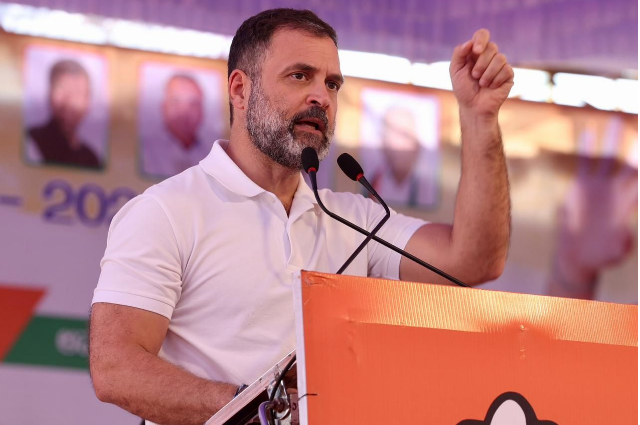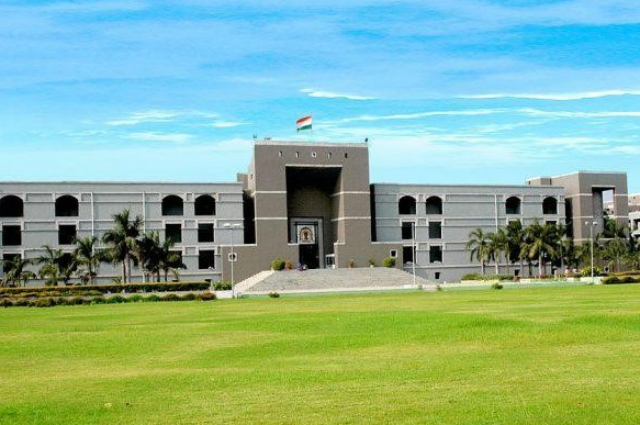Introduction
The recent imprisonment of Rahul Gandhi, a Congress leader and Wayanad MP, for two years in a criminal defamation case by a Surat Judicial Court in Gujarat has put the spotlight on India's defamation laws. The case was brought against Gandhi by a BJP MLA for his alleged comments regarding the “Modi surname,” and has sparked a heated debate on the application and extent of criminal defamation in India. Although Gandhi has been granted interim bail pending his appeal, the political arena is already in an uproar, with the Congress Party and other opposition groups accusing the case of being an attempt to suppress free speech and dissent through the misuse of legal procedures. The controversy surrounding this case has brought the issue of defamation laws in India to the forefront of public discourse.

The leader of the Congress Party has been barred from the Lok Sabha following his conviction in a defamation case by a Surat court. This action was taken in accordance with the regulations set forth in Article 102 (1)(e) of the Indian Constitution and Section 8 of the Representation of People Act, 1951.
Gandhi's disqualification was caused by statements he made in a campaign speech in 2019. He challenged the BJP's depiction of Modi as a guardian in response to the INC's claims of corruption, asking, "Why do all thieves have Modi in their names, whether it is Nirav Modi, Lalit Modi, or Narendra Modi? We don't know how many more Modis like them will surface." Purnesh Modi, a BJP lawmaker from Gujarat, filed a criminal defamation lawsuit against Gandhi for these statements that he felt harmed the Modi community.
The court in Gujarat found Gandhi guilty of defamation on March 23 and ordered him to serve a two-year prison sentence. However, the court suspended the sentence for 30 days, allowing Gandhi to remain free. Nevertheless, the conviction resulted in him losing his seat in Parliament and being unable to run for any election for the next eight years, according to Section 8(3) of the Representation of the People Act, 1951 ("RPA 1951"). Gandhi appealed the decision, and the appellate court suspended his sentence until the appeal was resolved. To regain his position as a legislator, Gandhi would need to win his appeal or obtain a stay or suspension of his conviction in the meantime. The Supreme Court clarified this point in 2018, stating that if the appellate court grants a stay of a legislator's conviction during an appeal, the disqualification will not take effect.
There is currently no law to explain what would happen if a bye-election is held in Gandhi's constituency before he can take any action, and a new representative is elected to the House. Additionally, there is a possibility that the appellate court may not bring about its decision on Gandhi's conviction before the 2024 elections, which will result in him being ineligible to participate in the general elections. In this circumstance, Article 101 of the Indian Constitution indicates that the new legislator would retain their seat, regardless of any subsequent court rulings on Gandhi's appeal, unless they choose to resign.
Similar cases of Defamation have happened in past
In April recently, a court in Ahmedabad summoned Delhi Chief Minister Arvind Kejriwal and Aam Aadmi Party's Rajya Sabha member Sanjay Singh for allegedly making sarcastic and derogatory remarks against Gujarat University regarding Prime Minister Narendra Modi's academic degree. The court of additional chief metropolitan magistrate, Jayeshbhai Chovatiya, issued the summons on Saturday, after determining that there was a case against them under Section 500 of the Indian Penal Code for defamation. The complaint was filed by Piyush Patel, the registrar of Gujarat University.
In 2014, BJP leader Nitin Gadkari who is now a Minister of Road Transport and Highways of India filed a defamation case against Arvind Kejriwal. This was after Kejriwal, in a press conference before the 2014 parliamentary elections, had publicly read out a list of "corrupt people" which included Gadkari's name. Gadkari claimed that he was defamed by being listed as one of "India's most corrupt" during the press conference held in New Delhi. As a result, in February 2014, a Delhi court summoned Kejriwal as an accused. Despite the summons, Kejriwal refused to post bail, citing that he was not a criminal. The trial court then sent him to judicial custody.
In July 2022, the Delhi High Court issued a summons to Congress leaders Jairam Ramesh, Pawan Khera, and Netta D’Souza regarding a defamation suit filed by Union Minister Smriti Irani. The suit pertained to tweets and other social media posts by the Congress leaders that alleged Irani's daughter was involved in illegal activities by running a restaurant bar in Goa with a licence obtained fraudulently in the name of a deceased person. The Congress demanded Irani's resignation as a result. Irani claimed in the suit that the Congress leaders had conspired to make false, hostile, and belligerent personal attacks against her and her daughter to defame, malign, and injure their reputations, moral character, and public image.
In 2014, Virbhadra Singh, the former Chief Minister of Himachal Pradesh who was accused of showing favouritism towards a private company, initiated defamation lawsuits against Arun Jaitley and Prem Kumar Dhumal, both leaders of the BJP. Anurag Thakur, the son of Mr. Dhumal, was also charged in the case for allegedly tarnishing Mr. Singh's reputation. Earlier that year, Mr. Jaitley wrote to then-Prime Minister Manmohan Singh and urged the CBI and Income Tax department to investigate allegations of a quid pro quo deal between Mr. Singh and the private power generation firm. According to Mr. Jaitley, documents indicated that the company had transferred Rs. 1.2 crore into Mr. Singh's bank account in May of the previous year. In June of that year, the Himachal Pradesh Cabinet approved an extension to the company's hydro-electric power project in the Chamba district.
What is defamation?
Defamation pertains to harm inflicted upon an individual's reputation and is considered a wrongful act. In India, it can be categorised as both a civil wrong and a criminal offence, depending on the intended outcome. When it is classified as a civil wrong, compensation in the form of monetary damages is typically awarded as a means of rectification whereas criminal law is designed to punish offenders and deter others from engaging in similar behaviour, often resulting in imprisonment for a maximum of 2 years. To establish defamation in a criminal case it must be proven beyond reasonable doubt whereas in a civil defamation suit, damages can be awarded based on the likelihood of the occurrence.
Was it a defamation case or an attempt to waste the time of the Court?
According to Section 499 of the Indian Penal Code (IPC), criminal defamation is defined as the act of making or publishing any statement about another person with the intention to cause harm or with knowledge that it will harm their reputation. The Indian Supreme Court has emphasised that the presence of mens rea and harm to the complainant's reputation are essential for an offence to be considered criminal defamation. Gandhi's rhetorical questions do not fulfil the requirements of Section 499, as they did not make any derogatory remarks about the complainant, Purnesh Modi, nor was it conceivable that Gandhi intended to tarnish his reputation. It is clear that Gandhi's comments do not amount to criminal defamation as per Section 499 of the IPC.

To ensure a thorough understanding of the situation, it is important to examine both Section 8 (3) of RPA 1951 and Section 500 of IPC. The disqualification specified in Section 8 (3) is only applicable if a lawmaker is sentenced to two or more years in prison. In the case of Gandhi's criminal defamation charge, the maximum sentence prescribed by Section 500 of IPC is two years, which is the exact sentence Gandhi received. This sentence is not only the maximum allowed under Indian law but also unprecedented. Additionally, the comment that led to Gandhi's charge was made during a politically charged election campaign, making it odd for the court to impose the maximum sentence which effectively disqualifies him from running for election for the next eight years. For many, such an order is equivalent to a political obituary.
Therefore, it is confusing why the court decided to act in this manner, but the reasoning behind it is not difficult to understand. Readers can draw their conclusions.
However, I want to make a point while maintaining appropriate boundaries. The court was aware of the political motivations behind the complaint and the potential consequences of a two-year sentence. By claiming to be an independent actor operating under the law, the court cannot simply bypass scrutiny and suspicion of potential influence or commitment to the incumbent executive. It was within the court's authority to determine the severity of Gandhi's sentence, but the chosen path resulted in the removal of a popularly elected legislator who is a prominent political opponent of the Prime Minister. This occurred right before the general elections for an offence that has been deemed undemocratic in many regions of the world. In this situation, it is difficult to distinguish which branch of government is the executive and which is the independent judiciary.
There is nothing uncommon about the ruling made by the magistrate court, as a similar decision was made by the Gujarat High Court on March 31. The High Court dismissed an appeal made against an order from the Chief Information Commission, which requested that Gujarat University reveal the educational degree of the Prime Minister, Narendra Modi. Since 2014, opposition leaders have doubted Modi's claim that he holds a degree in political science, which was stated in his electoral affidavit. The High Court's decision prevented any legal issues that could have arisen if Modi's claim was false, and it imposed a fine on the Chief Minister of Delhi for requesting the disclosure. This ruling aligns with previous events that raised concerns about Modi's educational background.
How can Rahul Gandhi proceed in light of his current situation?
If a superior court grants a stay of his conviction or rules in his favour during the appeal process, his disqualification may be nullified. His first step would be to file an appeal with the Surat Sessions Court, followed by the Gujarat High Court. If the courts do not grant him any relief, he will be disqualified from running in elections for a total of eight years, which includes the two years of his sentence and an additional six years under the RP Act.
What is the way forward now?
To move forward, Rahul Gandhi can opt to challenge the decision and seek a stay of conviction. To obtain a stay of conviction, one must approach the district judge, as it is rare for the same court that issued the order to grant a stay. In this case, Rahul Gandhi would need to contest the ruling and the appeal would be accepted initially, with the full hearing taking place at a later date. Usually, a temporary injunction is issued to delay the conviction until the hearing. The critical factor is whether this temporary order is granted. If the Sessions court does not halt the conviction, then the Gujarat High Court must be reached.
Conclusion
The case is now being tried in Gujarat High Court. The Court was informed by Gandhi that he has not committed any serious crime, such as murder or any immoral act. On 29th April 2023, the Gujarat High Court stated that Rahul Gandhi, a member of the Congress party who was elected by the people should be careful while making statements, single-judge Justice Hemant Prachchhak made this statement in the case of Rahul Gandhi vs Purnesh Modi. It is now to be seen that ultimately what judgment will be given by the court and what impact it will bring on the politics of our country.
The article discusses court decisions and executive actions that endanger the survival of a robust opposition in India. It remains uncertain whether these actions stem from the authoritarian stance or unjustified stand of the Modi government, as no independent commentator can conclusively determine this. Nonetheless, the situation reveals the deteriorating state of India's democracy. Given Modi's ambition for a third consecutive term as Prime Minister, it is likely that more threats will arise. It is crucial for the appellate courts to recognize the issue and guarantee fair elections in 2024, providing a level playing field for all parties involved.
[Disclaimer: This article is based on various facts and references taken from research blogs, Media resources and studies. It doesn't attempt to hurt any sentiments and doesn’t discriminate among any political party, caste, religion, gender, sex, or place of birth. The author and Reflections.live team is not liable for any sort of legal action against them. By reading this blog, readers give consent that the views in this article are opinions based and readers might agree or disagree with the same for which they can’t sue the author or Reflections.live team or people associated with this blog directly or indirectly, for any sort of disagreements in case they have. Further Reflections.live team and the author have high regard and respect for all opinions. Thanks for taking out crucial time and happy reading!]
. . .
Reference:


